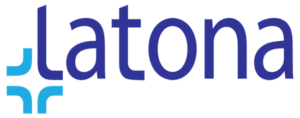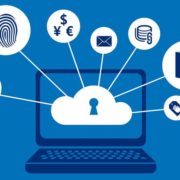What Are the Benefits of Implementing an ERP Software?
As you have come across this article, you might already be aware of what the ERP acronym stands for or what is this type of software used for. But maybe few of you are aware of the fact that the history of ERP itself goes back more than a century.
In 1913 engineer Ford Whitman Harris developed the system that became known as the economic order quantity model, or EOQ. About 50 years later toolmaker Black and Decker was the first company to adopt a material requirements planning (MRP) which combined EOQ qith a mainframe computer (as the EOQ was a paper-based scheduling system). Later on this standard was upgraded to MRP II – it was the first time when different manufacturing tasks were integrated into one common system. It evolved even more with the development of computer science and technology and by 1990 this new type of business management software was already known as enterprise resource planning.
So, ERP systems actually link and define a wide range of business processes and enable the flow of data between them. These systems provide data integrity and exclude the possibility of data duplication. As there is a single source and a common database as well as a centralized data repository, everyone in the organization can be sure about the data being accurate, updated and complete.
Why should a company implement and ERP software in its business?
Few of the numerous advantages of implementing an ERP software are: better productivity and efficiency, lower costs, improved task management, etc. Let’s have a look at the reasons why you should think of implementing and ERP system and how it can be beneficial for your business.
Easier communication and collaboration
Needless to say, communication is the key to success in any organization. The data integrity which we already mentioned is based on a common platform and a single source of information, which betters the communication between employees, therefore – the whole working process and the result too.
Efficiency and better task-management
An ERP solution eliminates repetitive processes and greatly reduces the need to manually enter information. It also improves efficiency through defined and more streamlined business processes.
Cost savings
In the first place, ERP software reduces operational and administrative costs. With real-time information, generated by reports, it improves business insight, allows manufacturers to proactively manage operations, prevents disruptions and delays.
Makes reporting easier
The improved reporting ensures that the company can respond to complex data requests more easily. As far as reports are concerned, and ERP software also provides highly formatted reports which help in monitoring the progress towards goals.
Personalization
A remarkable feature of an ERP software is that it can be adapted for each business. So it is a system with common principles but can be fitted so that it meets the needs of any company and team.
Planning and forecatsing
An ERP software provides accurate and updated information which allows managers to make realistic estimates and effective forecasts.
Lower risk
The improved data integrity and financial controls lead to a lower risk. The consistency in infrastructure and all business processes ensures the efficiency and the positive results with a minimum possibility of fail.
Last but not least, the ERP solutions provide mobility and flexibility. You can get updates in real time on your smart device through specific applications, which allows you to monitor your business and work from anywhere you are.












Leave a Reply
Want to join the discussion?Feel free to contribute!